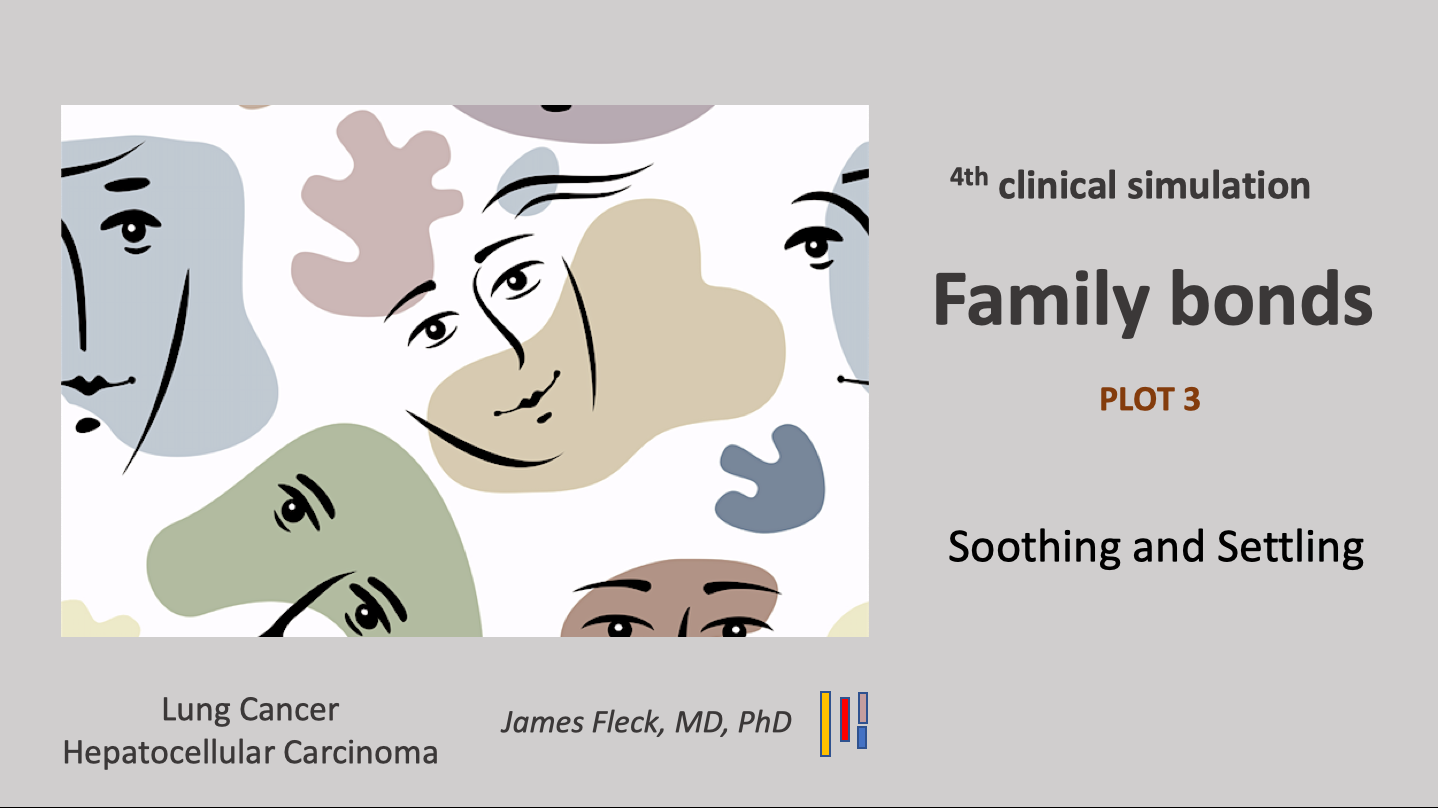
Take-home Message
How to overcome emotional repression
(Fictional narrative by the doctor)
James Fleck, MD, PhD & João A de Andrade, MD
Anticancerweb 23 (07), 2019
The next day, when I arrived at my office, I was surprised to see Charles's wife standing in the waiting room.
Ealier that day, Eleanor, had come into the office and demanded to see me in a loud and aggressive manner. My secretary tried to calm her down but she kept pacing the waiting room. As soon as I arrived, she confronted me in front of patients and staff and immediately accused me of hiding information on her husband’s illness. She demanded that I disclosed her husband’s diagnosis at once and added that he had not told her much, as he “preferred to deal with the problem on his own”.
Although I had a full schedule that afternoon, I felt that I had no choice but to agree to talk to her. I apologized to everyone for the inconvenience and invited her to my office were we could speak privately.
I was still trying to understand her family dynamics. At that moment, it became obvious that this apparently well-adjusted family had a significant communication breakdown and talking to Eleanor would give me a better insight into how they behaved when faced with adversity .
When Eleanor sat down, she said that she was feeling guilty for being angry at Charles. His attitude left her feeling neglected and sad. I could see that she was suffering and suspected that Charles had always shielded his family from bad news, which, in turn, left them ill-prepared to handle a life crisis.
I would have to deal with this family dynamic to be able to effectively help Charles . It would have to take some time to better understand Eleanor's feelings and to assess the needs of other family members.
I let Eleanor talk and slowly she started to calm down.
I told her that I could understand her emotional distress. It seemed to me that Charles had always been the central figure in the family. Given his illnes, he could no longer play that strong role and the whole family was feeling unbalanced.
I was hoping that Eleanor would see my comment as an invitation to talk further.
Apparently, it worked…
Eleanor started to cry!
I realized she was feeling very insecure, and desperately looking for some help. I gave her a tissue to wipe away her tears and, after a few seconds, she recovered and began to talk. She complained that Charles had spent most of his life attached to his family business. The company had been established by his father 75 years before. Charles, feeling responsible for the business, plunged into work and substantially expanded it. What at first was just a small shoe factory, much due to Charles hardwork, expanded into a National leading brand with branches in a number cities across the country and abroad. Charles made a lot of money, but he always reinvested in the company because he thought that it would guarantee a secure future for his children. Although he was a good provider for his family, he was also extremenly frugal . He never took a vacation with his family. On weekends, he often traveled on business and only rarely gave Eleanor flowers or gifts. Eleanor felt that their married life had been marked by her husband’s emotional indiference.
I was listening to Eleanor attentively, reflecting on how the illness unveiled conflicts that had probally been brewing just beneath the surface. When they emerged, they did so with an explosive force.
Eleanor had reached her emotional limit. She was already aware of her husband's illness, since she had also looked at Charles’s chest CT scan report. But her unexpected visit to the office that afternoon was a desperate search to relieve her lifelong suppressed anguish and frustration.
My schedule was already forty-five minutes late, and fortunately my secretary interrupted by saying that the first two patients were already in the waiting room and that they had already asked about the delay.
I told Eleanor that we would have to continue our conversation on another day. I suggested that she shared the news with her children as they were already grown up and could help her deal with this family crisis. I assured her that I was willing to talk to them, but that would have to have Charles's approval first.
As soon as Eleanor left the room, I wondered if I had done the right thing. I was afraid I had acted impulsively when I advised her to talk to her children, and also by making myself available to answer their questions. Charles was, after all, a very private person and it was not natural for him to share his emotions with his family. He would have to drop some of his emotional shields to be able to effectively communicate with his wife and children. I was certainly hoping he would…
To be continued in PLOT 4 (climax): Double life
* Attention: The story 4 will be published sequentially from PLOT 1 to PLOT 6 and you will always see the most recent posting. To read Story 4 from the beginning, just click in the numbered links located at the bottom of the homepage.
© © Copyright 2020 Anticancerweb
James Fleck, MD, PhD: Full Professor of Clinical Oncology at the Federal University of Rio Grande do Sul, RS, Brazil 2020 (Editor)
Joao A. de Andrade, MD: Professor of Medicine and Chief Medical Officer, Vanderbilt Lung Institute, Vanderbilt University Medical Center, Nashville, TN – USA 2020 (Associate Editor) Anticancerweb

Please login to write your comment.
If you do not have an account at Anticancerweb Portal, register now.